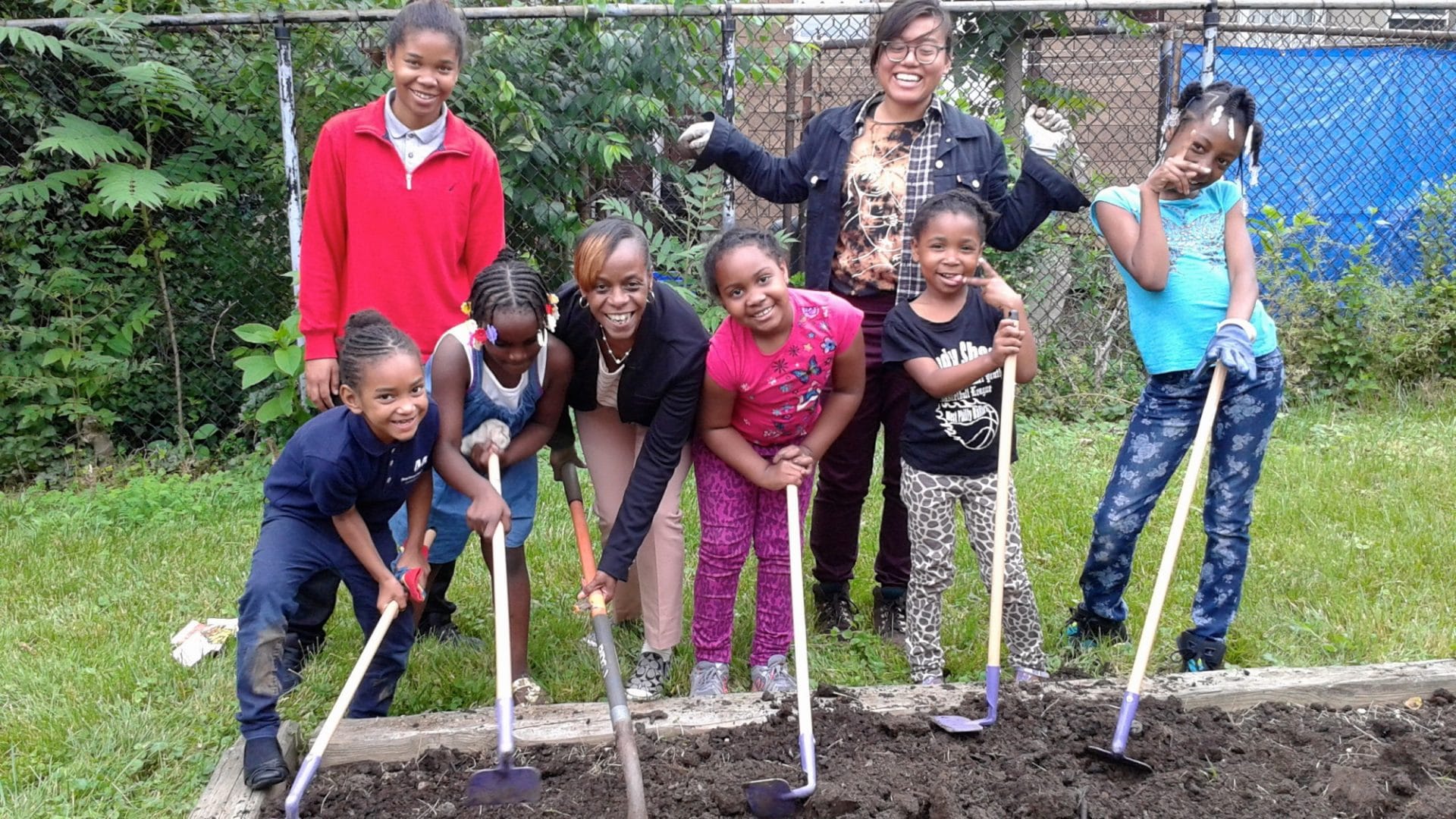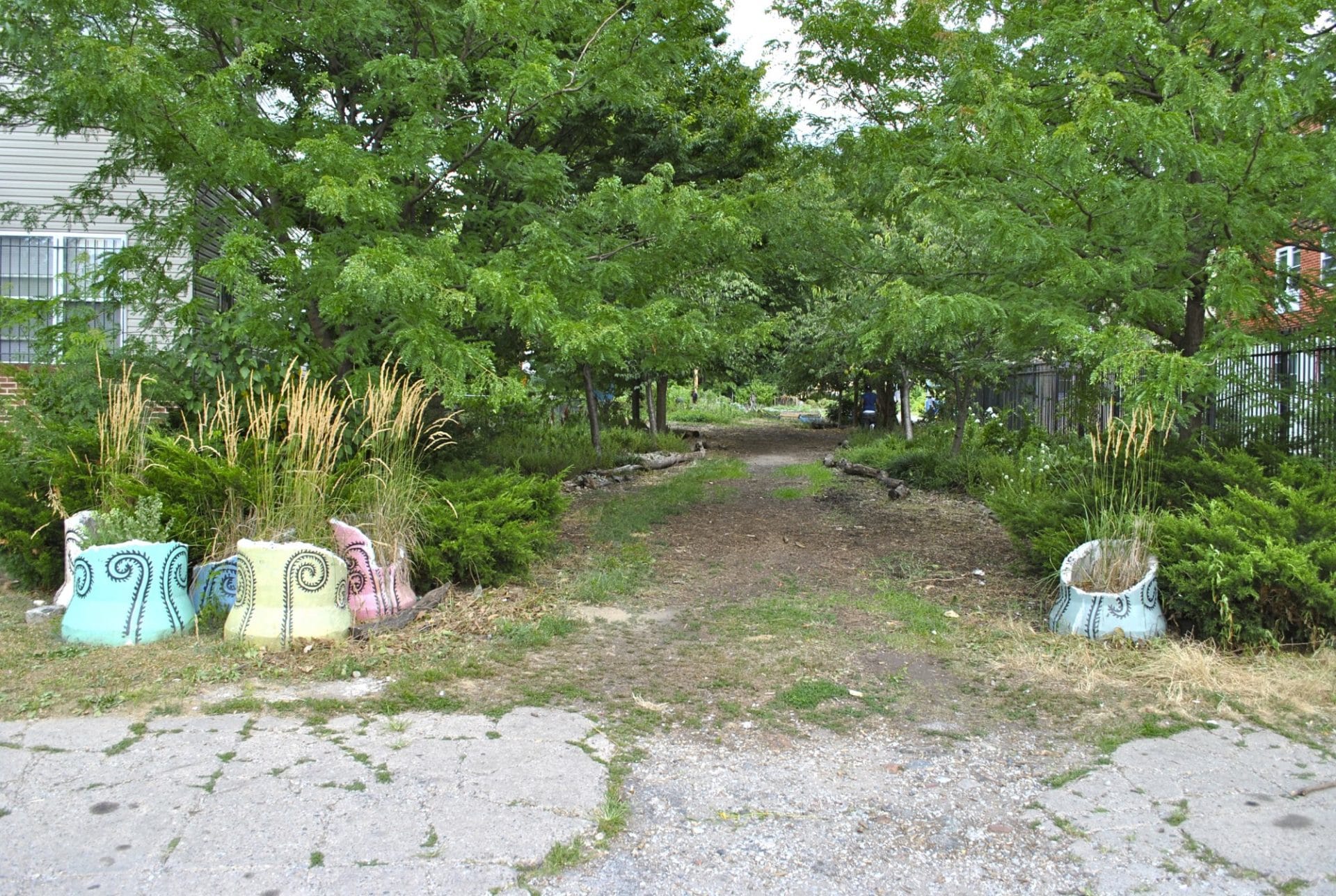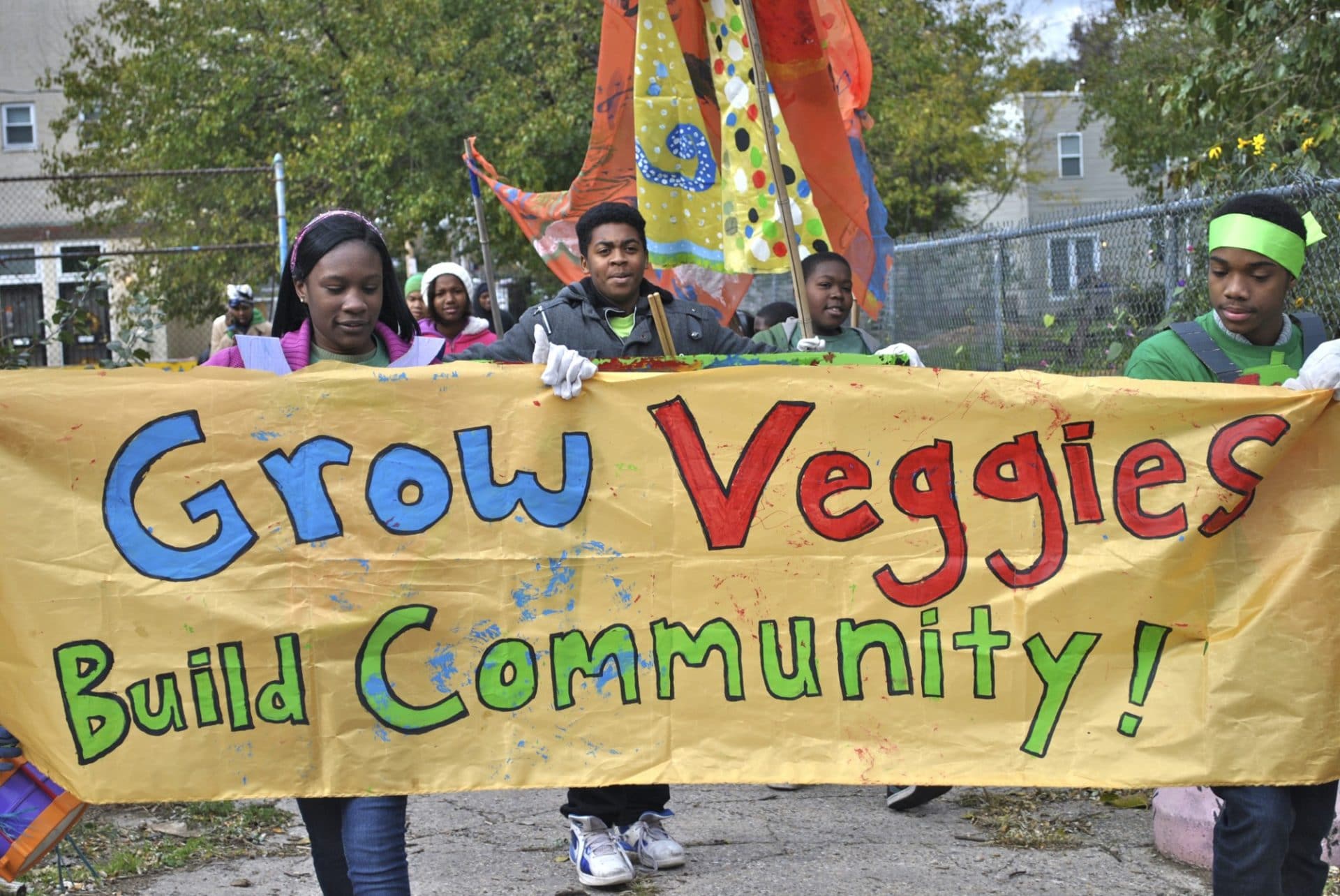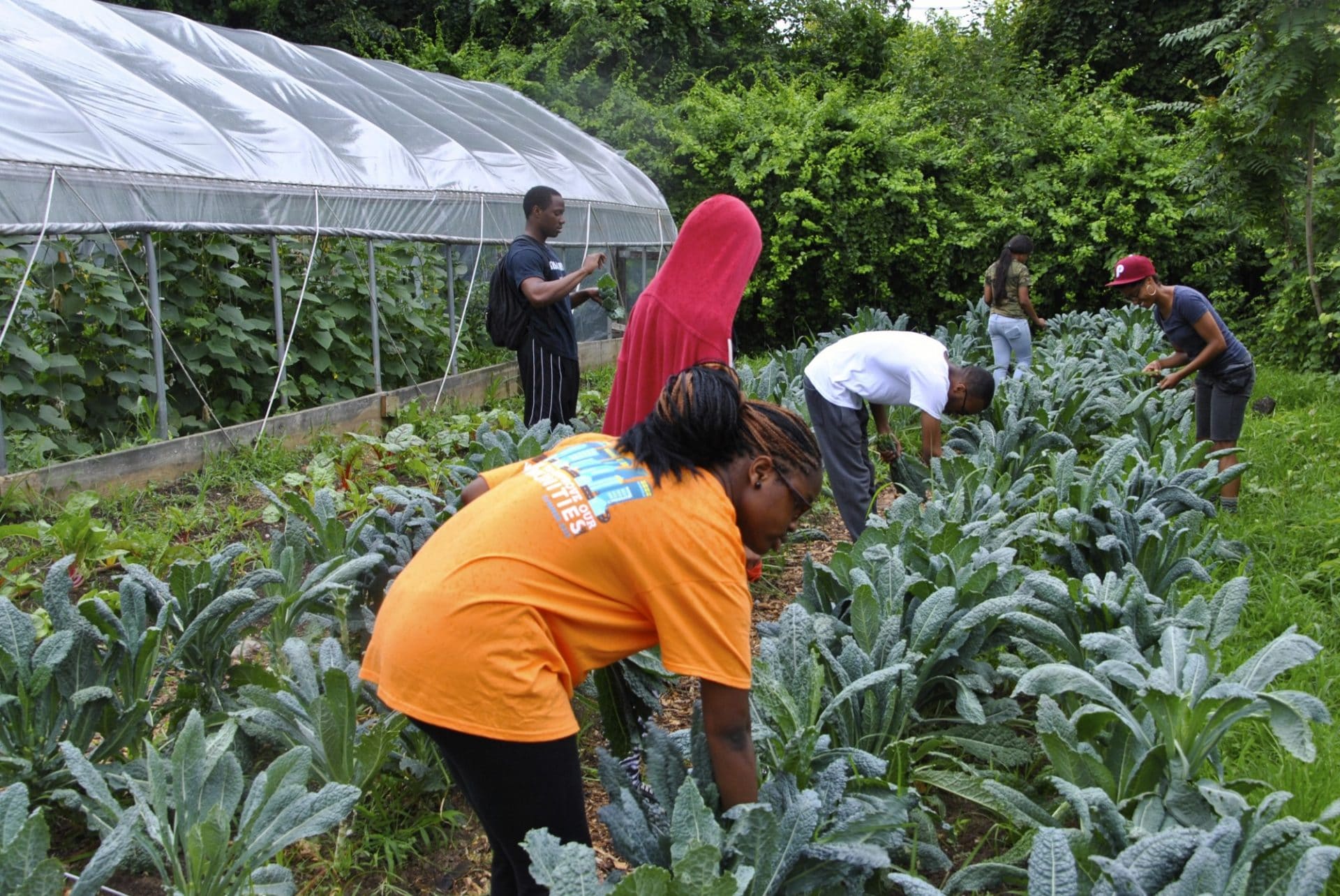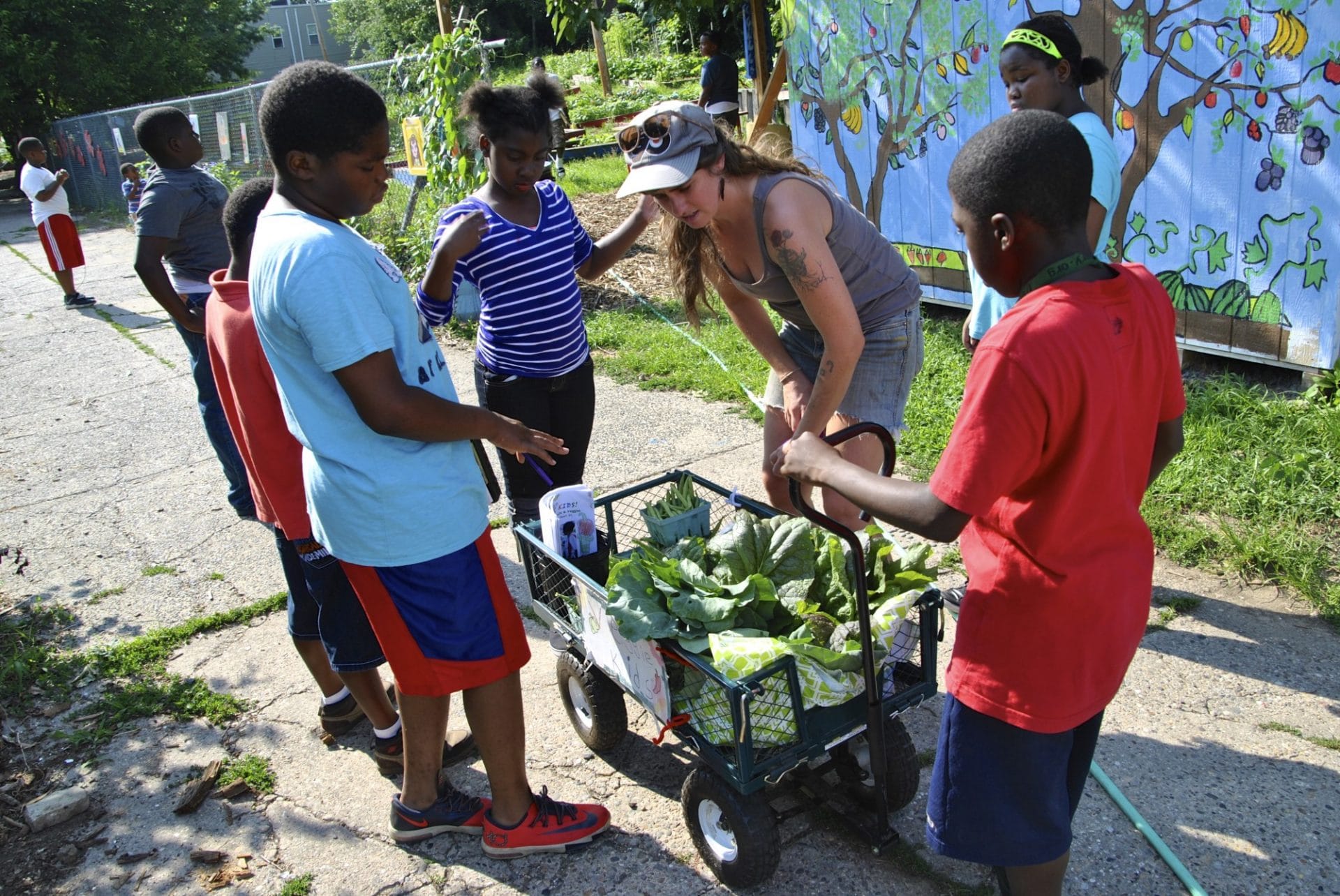This article is an installment of the Kitchen Table Consultants Series, featuring farmers, artisans and locally focused businesses.
While others may see an abandoned Philadelphia lot as an eyesore, Skip Wiener and his team at Urban Tree Connection (UTC) see an opportunity.
When Wiener lost his job as a landscape architect in 1989, he knew didn’t want another typical desk job. He developed a program where he and youth from Chester would replace the tires, trash and weeds in vacant lots with trees and plants. Over the next five years, he brought his garden curriculum and service projects to more than 20 Philadelphia schools. But budget restrains and Philadelphia and Chester School districts’ leadership changes slowed down the program.
At the same time, the William Penn Foundation formed the Youth Development Initiative, which provided funding to form nonprofit councils to work with at-risk kids in five high-crime neighborhoods around the Greater Philadelphia region. Skip joined the Haddington council in West Philadelphia in 2000, and then reached out to West Philadelphia residents, church groups and students to canvas their neighborhoods for vacant lots that could become community gardens. The children identified an abandoned lot across from the Pearl Street projects.
With heavy machinery, muscle from inside and outside the community and UTC staff, the lot was turned into a mini-park with raised beds. Murals were painted nearby. Children and adults started to trickle in to learn how to eat healthier and grow their own food. Adults requested picnic tables for reading circles and homework help. They also felt safer letting their kids play outside. Neighborhood associations were created, with eager block captains reaching out to their district police representatives. Crime began to disappear: drug dealers no longer wanted to deal drugs around playing children, lots with chop shops and stolen cars were cleaned up and night-time prostitution disappeared when safe lighting went up. The cacophony of gun shots was replaced with children’s laughter.
Self-proclaimed Veggie Kids learned to grow, wash, package and sell their own vegetables. They even started to walk the neighborhoods selling fresh produce to their neighbors out of a wheelbarrow. Many of these Veggie Kids are now participating in UTC’s teen apprentice program, where teens earn a stipend and learn job-related skills and responsibilities through gardening activities. Every year, hundreds of kids participate in UTC’s Growing Healthy programs where children 4–18 years of age engage in active learning through garden activities after school and during summers.
Ikey Sealy is a second-year teen apprentice who worked last summer and then stayed on through the fall and spring to help lead volunteer groups. “Since working here, it’s made me like to hang around people more,” said Sealy. “I was pretty solitary before, but now I like meeting new people. It’s also helped me build work experience, taught me to have a green thumb and take pride in my community,” said Sealy.
After Pearl Street, UTC started guerrilla gardening in as many plots as they could get their hands on. In the 12-block radius between Vine Street and Girard Avenue and 52nd and 55th streets, UTC now maintains 29 parcels of vegetable gardens, perennial gardens and one of Philadelphia’s largest farms—the Neighborhood Food Farms at the corner of 53rd Street and Wyalusing. The farm as well as their other parcels host a variety of community events including cooking demos, workshops, block parties, parades and community dinners cooked by neighbors and the children in their summer programs.
“The farm is a total safe haven to these kids,” said Wiener. “They walk into the farm and nothing is going to happen to them. They walk onto the sidewalk and they have to calibrate to guns, bullets or a fist. As soon as they step onto the sidewalk they have recalibrate how to survive.”
During the summers and after school, teens and kids work with UTC staff and summer interns to maintain this ¾-acre farm with high tunnels of tomatoes and peppers, rows of summer squash, cucumbers, beets, eggplants and a bounty of fresh herbs and vegetables. Produce from the farm flows to neighborhood residents through a weekly farmers market on Saturdays from 10 a.m.–2 p.m. as well as pop-up markets, area restaurants, the Rittenhouse Farmers Market, Drexel Farmers Market, a Lancaster farmers market and Partners for Sacred Spaces.
There has been a shift over the past few years over how the projects are maintained. Through the tireless effort of UTC and a co-op formed of 20 block captains, the plots have shifted from guerrilla gardening on abandoned lots to Haddington residents becoming land-trust conservators.
There are plenty of ways to get involve with UTC: learn more about their programs through their website, Facebook or Twitter; mentor a child; join their network of nearly a thousand volunteers; or make a donation.
The City of Philadelphia is currently estimated to have more than 30,000 vacant lots, which offers many opportunities for UTC to grow a community, one block at a time.
This article is sponsored by Kitchen Table Consultants.
- Photography: Urban Tree Connection
